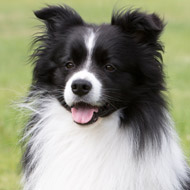
Breeders urged to test for severe sensory neuropathy
A new DNA testing programme for severe sensory neuropathy in border collies has been approved by the Kennel Club, following consultation with the breed’s health coordinator.
Sensory neuropathy is a neurological disease that is caused by the degeneration of motor nerve cells. Its onset usually occurs between two and seven months of age, with signs including knuckling of feet, self-mutilation wounds, progressive ataxia and loss of sensation of all four limbs.
The prognosis for sensory neuropathy is poor and the dog’s quality of life can be severely affected. As there are no effective treatments, border collies affected by the condition are euthanised on welfare grounds before they reach the age of two.
In a press release, the Kennel Club said: “The Kennel Club constantly reviews DNA testing schemes and programmes in conjunction with breed clubs to ensure that breeders are supported with resources which help them to make responsible breeding decisions.
“Test results will be added to the dog’s registration details which will trigger the publication of the result in the next available Breed Records Supplement. The result will appear on any new registration certificate issued for the dog and on the registration certificates of any future progeny of the dog, and also on the Health Test Results Finder on the Kennel Club website.
“Results for dogs already tested can also be recorded, but owners will need to submit copies of the DNA certificates themselves.”
The Kennel Club adds that if the owner includes the original registration certificate for the dog (not a copy) then a new registration certificate will be issued, with the DNA result on it, free of charge.
Image (C) Ruth Dairymple/Kennel Club.



 The Veterinary Medicines Directorate (VMD) is inviting applications from veterinary students to attend a one-week extramural studies (EMS) placement in July 2026.
The Veterinary Medicines Directorate (VMD) is inviting applications from veterinary students to attend a one-week extramural studies (EMS) placement in July 2026.